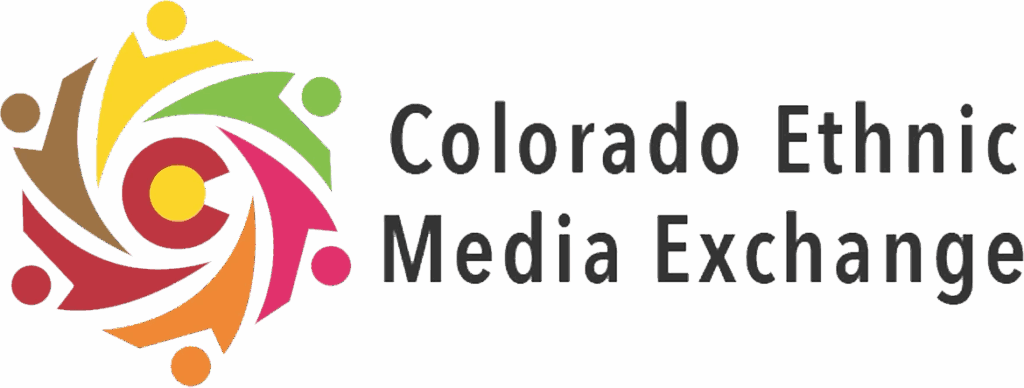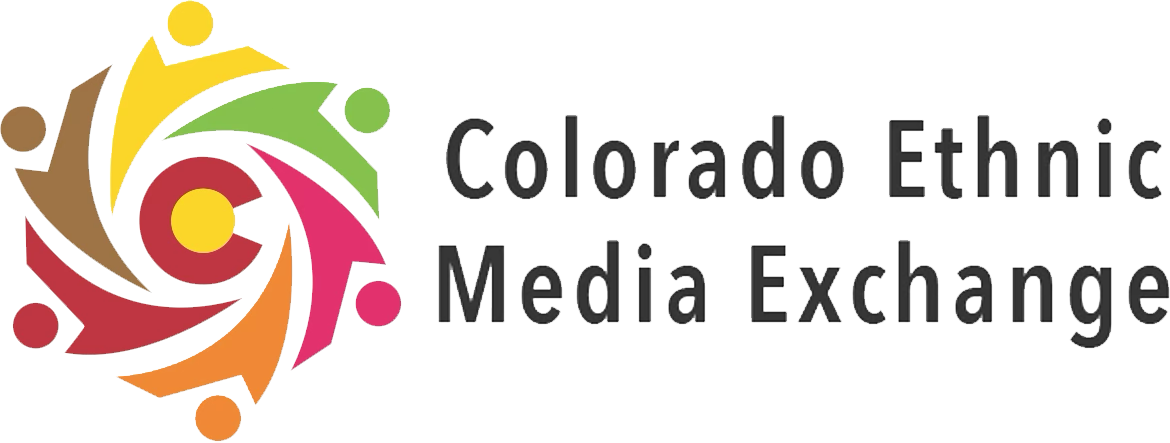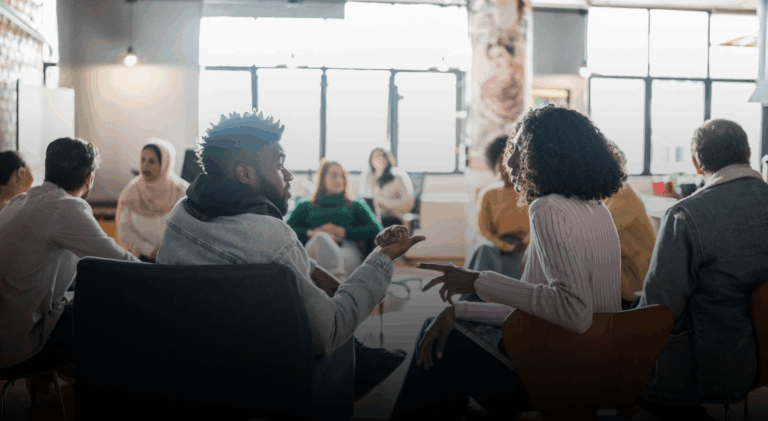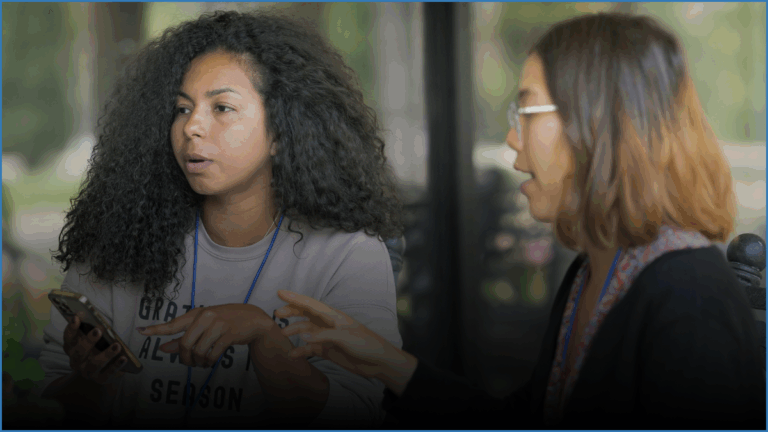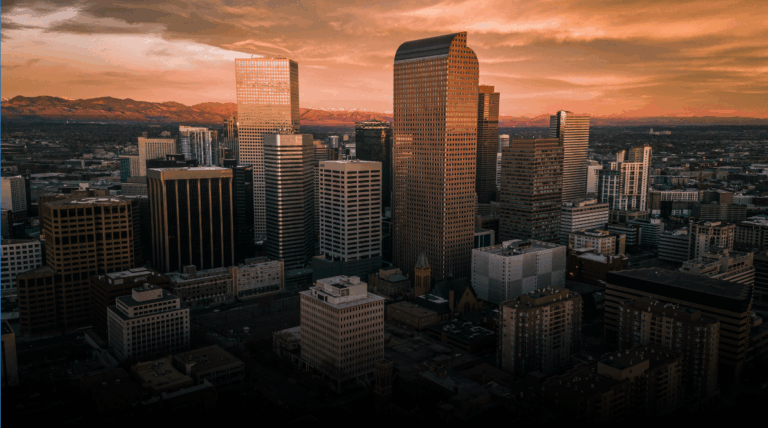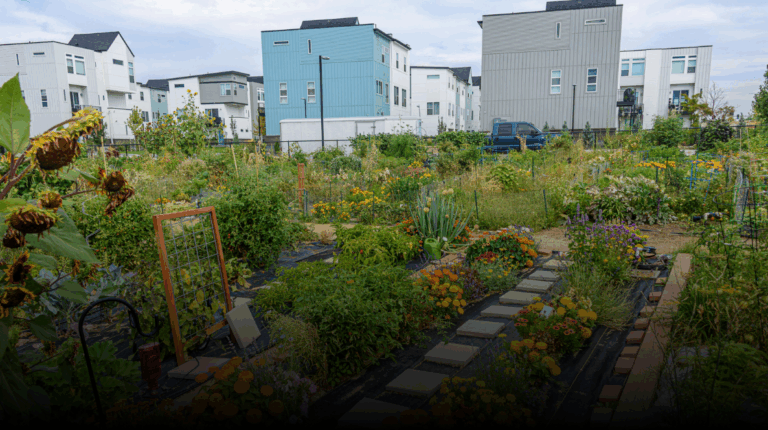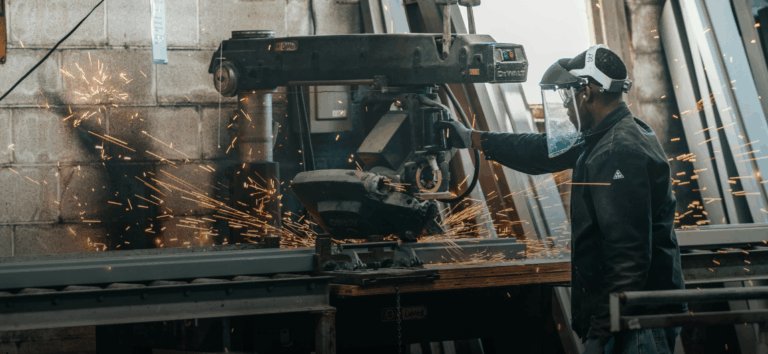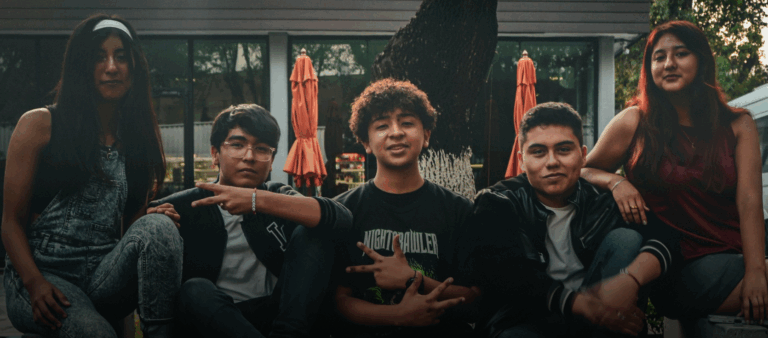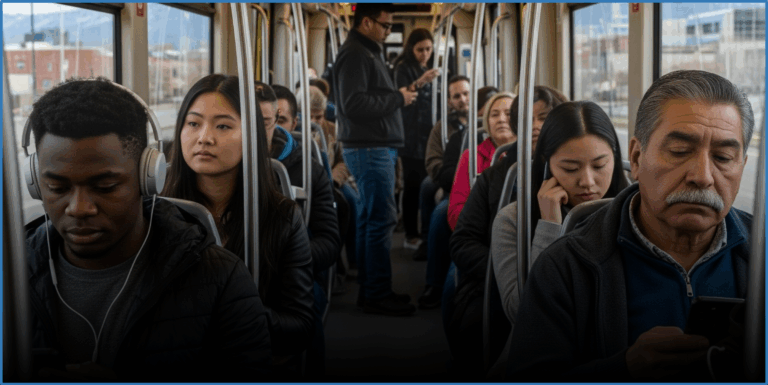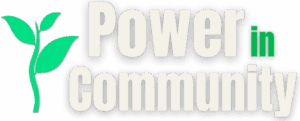
POWER IN COMMUNITY · NO. 8
Build Power
Time to unlock your influence. This guide offers tangible steps to connect, contribute, and drive systemic change right where you live.
Throughout the Power in Community series, we’ve explored the deeper forces shaping health, opportunity, and belonging in Colorado. These aren’t just personal hardships—they stem from systems that have long excluded or underserved communities based on race, income, immigration status, geography, and language.
We’ve seen how redlining still shadows housing access. How civic decisions get made without those most affected. How public disinvestment erodes gathering spaces and limits growth. How gig workers and young people face isolation and instability in systems not built for them.
But we’ve also seen Coloradans push back. Across the state, people are reclaiming power—co-creating community hubs, organizing for policy change, and building new economic models. Often with the support of organizations that listen deeply and back community-led solutions.
This final installment is an invitation to take stock and take part. You don’t need a title, a policy degree, or a microphone to begin. Civic participation grows from local knowledge and shared effort. It starts when we believe our voices belong here.
So what role might you play?
Action Paths For Real Change
Community power isn’t about titles or institutions.
It lives in our choices, habits, and shared efforts. People grow into power by learning how systems work and realizing they can shape them. These are paths already in motion across Colorado, and there’s a way in for everyone.
1. Reframe How You See Power
Power doesn’t always look like a podium or a title. It might look like someone who starts a neighborhood text thread. The auntie who makes sure everyone eats. The teen who organizes a coat drive at school.
When you encounter a challenge or a decision that affects your neighborhood or community, pause and check a common assumption: “I can’t do anything about this.” Instead, challenge that thought. Someone, somewhere, is likely already working on it or has ideas. Your perspective is valuable, and you don’t have to start from scratch.
Then, ask yourself these questions:
- What’s really going on here, beyond the surface—and who does it affect most? This helps you see past symptoms and understand the root of the issue, especially its human impact.
- What strengths already exist in my community that could help address this? Think about people, places, traditions, and everyday problem-solving that’s already happening.
- Are there any local groups, leaders, or neighbors working on this—and how are they doing it? This can point you to efforts that are already making progress, so you don’t have to start from scratch.
- Who else cares about this—and what small thing could we do together? Even small actions add up, especially when shared.
These kinds of questions help you move beyond frustration or a feeling of helplessness. They spotlight the systems behind the issues, as well as the resources all around you. And they remind you that you’re not alone in caring.
But noticing is just the start. The next step is connection. That means finding others who care, are asking the same questions, and want to act instead of sitting on the sidelines. That’s where power begins to multiply. Whether you’re hosting a kitchen-table conversation, trading updates in a WhatsApp group, or asking “Who else should be part of this?”, you’re helping build the kind of collective awareness that leads to real action.
The lesson from this series is simple: power isn’t handed down. It’s built with community, and sometimes that starts with the simple act of noticing and choosing not to look away.
2. Get Informed and Stay Connected
Follow local and ethnic media
Knowledge is power—especially local knowledge. When you understand who’s making decisions in your neighborhood and why, it’s easier to show up where it matters.
This doesn’t require becoming a policy expert. It starts with paying attention to the people already doing the work. Colorado boasts community-rooted outlets covering housing, public health, and equity. Here are a couple of places to start.
- COLab’s newsroom map connects you to trusted local journalists: colabnews.co/colorado-news-mapping-project
- Colorado Ethnic Media Exchange (CEME) amplifies BIPOC-led newsrooms: ethnicmedia.co
Use your library
Libraries offer much more than books. Many are civic hubs—places to meet neighbors, access reliable information, and find community support. The Denver Public Library, for example, hosts everything from English-language learning and immigration legal aid to business plan help and free access to news databases. Visit your local library’s website and browse their services; you might be surprised by what’s already available.
Let advocacy groups lead your feed
If there’s a topic you care about, follow local organizations doing the work. Many post updates on pending policies, community events, and helpful resources you won’t find in the mainstream news. Some organizations create informative, in-depth reports about the issues they advocate for. To find groups in your area, try searching by issue and location. Phrases like “renter rights Denver” or “youth mental health Pueblo” can be good starting points. Once you’ve found a few, follow their social media pages to stay informed.
When you understand how decisions get made—and who’s making them—you’re better equipped to speak up, show up, or take the next step. Knowing what’s happening around you is one of the most powerful ways to start getting involved.

3. Showing Up Counts
You don’t necessarily need a mic to make an impact. Sometimes, the most powerful move is simply showing up, even if just to witness. When community members attend public meetings, even silently, it signals: We’re watching. We care.
That presence shifts the tone. And for community members who choose to be more vocal, it provides invaluable support. We saw this in Denver’s Globeville and Elyria-Swansea neighborhoods. Residents—including members of the GES Coalition and Tierra Colectiva—organized, advocated, and showed up to public meetings to push for development that prioritized affordability and community control. Their efforts led to a major win: a new housing and library project shaped by their vision and protected through a community land trust.
Want to do the same in your community?
Start with your local meeting schedule. Every city, county, and school district posts upcoming agendas online, often with hybrid options so you can join from home. Look for:
- “[Your Town] City Council meetings”
- “[Your County] Commissioners’ meeting schedule”
- “[Your School District] board meetings”
Even a 10-minute scan of the agenda can show you what’s coming.
Don’t worry about dressing up or knowing the rules. Just bring your attention, including paying attention to who isn’t in the room. Are renters missing from a conversation that affects rental policy? Are public health plans moving forward without input from people with disabilities or those who speak limited English? Spotting those gaps is the first step toward closing them.
Being present matters. Even if you sit in the back and say nothing. Especially if you come back next time.
4. Amplify Voices Like Yours
Tell your story, your way
Show up in the data
Filling out the right survey can lead to real change. The Colorado Health Foundation’s Pulse Poll influences statewide priorities. The Colorado Health Access Survey (CHAS) guides funding decisions. Local governments also run topic-specific surveys—like the one that helped shape a new park in Clifton. These are easy, low-risk ways to be counted.
Join the conversation
Culture shifts when more people speak honestly and often, especially about local issues that don’t make headlines. Being visible doesn’t always mean being loud. Answer a poll. Ask a question in a meeting. Share your truth with a friend who hasn’t heard it yet. Each moment builds momentum and makes more room for others to be heard, too.

[Elected] officials are just residents of Colorado who were elected into their roles. You and I can be those people, too.
DR. LEO KATTARI,
SENIOR OFFICER FOR PUBLIC OPINION INSIGHTS,
THE COLORADO HEALTH FOUNDATION
5. Plug In with Local Groups
Local organizations are often the engine behind lasting change. They’re rooted in community, staffed by people who understand the terrain, and tuned in to what’s working and what needs fixing. Whether they’re hosting tenants’ rights training, organizing for policy change, or running after-school programs, they know how to turn effort into impact.
Consider the team at the Community Language Cooperative, which provides comprehensive language justice support, community-based programming, and specialized training to empower every individual to engage civically and fully express themselves in the language of their heart. There’s no one-size-fits-all way to contribute. Here’s how to get involved:
Start with an issue you care about
Whether it’s housing, education, climate, or immigrant rights, chances are there’s a group already doing the work. Most welcome new voices, especially if you come ready to learn.
Offer what you already know
You don’t have to be a professional organizer. Maybe you’re good at outreach, design, or translation. Maybe you can give rides, help with events, or just knock on doors in your own building. Whatever you bring can strengthen a group’s efforts.
And you gain something, too. You’ll meet people who care about the same things, learn more about your community, and build connections. Community power gets stronger when more of us plug in.
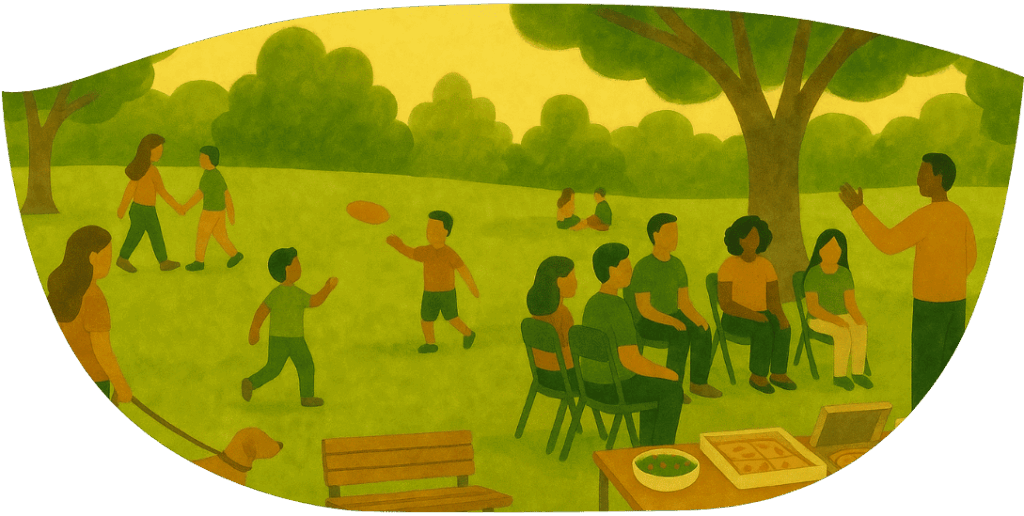
6. Push for Bigger Shifts
Some change starts small—through group chats, community fridges, and neighborhood meetups. But deeper transformation often requires a seat at the table where decisions get made.
Across Colorado, everyday residents are stepping into those roles. They start by asking questions and showing up. Over time, they become the ones shaping the agenda.
That kind of leadership might come with a title, but it starts with support, especially for people who’ve historically been shut out of formal power. That’s where programs like the CHF-supported Collective Leadership Initiative come in. It’s built for Coloradans with lived experience of inequity—people who see what’s broken and want to help fix it.
Participants build skills in public speaking, coalition-building, and navigating complex systems. They define what equity means in their communities and work toward it. Many go on to serve on boards, lead campaigns, or influence policy. These programs don’t just build leaders. They also shift the idea of who gets to lead.
Wondering where to start?
Check your local government for open seats on task forces, advisory boards, or volunteer commissions. Watch how decisions are made. Reach out to someone already doing the work. You may be closer to influence than you think. As CHF’s Dr. Leo Kattari, who we met earlier in this series, noted, “[Elected] officials are just residents of Colorado who were elected into their roles. You and I can be those people, too.”
7. Lean In Safely
For some Coloradans, being visible comes with real risk—because of immigration status, fear of discrimination-driven retaliation, financial insecurity, or past trauma.
Here are just a few ways to contribute safely:
Support behind the scenes. Offer skills like design, translation, or research to local groups doing frontline work.
Share trusted information. In WhatsApp threads, group chats, or private social networks, vital knowledge often spreads fastest through trusted messengers.
Work with safety-focused organizations. Legal aid groups like the Community Economic Defense Project (CEDP) help people assert their rights while minimizing risk. These advocates can act as protective bridges between policy and lived experience.
Tell your story, your way. If you’ve faced discrimination, housing insecurity, or exclusion, your perspective matters. As mentioned above, many organizations gather anonymous or private stories to guide their work.
The movement for change needs all kinds of roles: protectors, disruptors, educators, caregivers, builders, artists, analysts, storytellers. Or being the person a neighbor trusts with the truth. What matters most is choosing a role that allows you to show up safely—and keep showing up.
Reflecting on Community Power in Action
The systems that shape our lives—who has access to housing, health, opportunity, or power—weren’t built by accident.
They were built by people. And they can be rebuilt by people, too. That includes you.
Community power isn’t about having all the answers or the loudest voice. It’s about seeing what’s needed, knowing what you have to give, and staying connected to something bigger than yourself. The role that fits may shift, but there are still many ways in.
Times are tough, but people in this state are continuing to step up, backed by organizations like The Colorado Health Foundation and the initiatives they fund that are focused both on protecting people and on imagining—and building—a new world.
Pick one action and take a step, because change moves when we do.
The Power in Community series is presented by The Colorado Health Foundation, working statewide to improve the health of Coloradans through community-informed investments and policy change. Learn more at coloradohealth.org.
Distributed by the Colorado Ethnic Media Exchange, a statewide network of newsrooms serving Colorado’s diverse communities and advancing equitable representation in media. Produced by Angle Content & Strategy, which builds mission-aligned content, tools, and partnerships that grow community agency.
About this article: All editorial decisions, reporting, and writing were carried out by human beings. Spanish-language versions were first translated using ChatGPT (OpenAI) and then reviewed and refined by a professional bilingual editor.
All inline illustrations were created using ChatGPT. The featured image was sourced from Unsplash. Image credit: Sincerely Media
